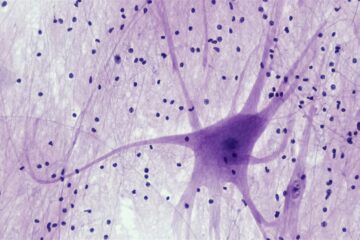Evangelicals can’t defeat actual atheism, so they vastly prefer strawman atheism—their own unique and deliberate mangling of atheism. The real thing is impenetrable to them, and they very clearly realize it. But this strawman form of atheism is much easier to tackle. Today, let me show you how what was old became new again for this crowd, why their mangled form of atheism is such a disastrous take on it, and what their dishonest tactics reveal about that entire end of Christianity.
(This post and its audio ‘cast first went live on Patreon on 9/2/2025. They’re both available now! From introduction: Cruel Intentions (1999).)
SITUATION REPORT: The dreary depressing worldview of ‘ontological materialism’ —er, strawman atheism
Our Original Post (OP) today immediately caught my eye when I saw it: “Escaping the depressing worldview of ontological materialism,” written by pastor Dan Delzell for Christian Post. His church, Redeemer Lutheran of Papillion, Nebraska sounds very evangelical, which isn’t surprising given his very evangelical-sounding post.
Though he calls his enemy “ontological materialism,” what he means is atheism. When evangelicals say “materialism,” they mean atheism. Always. The “ontological” gets tacked on as a way to make it sound kinda religious, since in Christian apologetics “ontological” is a big deal that means “the nature of being.” (The ontological argument asserts that “God” must exist because only a real god can be greater than an imaginary one, and “God” is greater than anything.)
Notably, the tenets of what Delzell thinks are “ontological materialism” look exactly like evangelicals’ take on atheism, along with my notes and some sources to other evangelicals talking that way:
God does not exist. [Duh. Source 1.]
Man arose gradually from lower animals … by mindless, undirected processes. [Evolution is not random, but whatevs; I guess most of it isn’t specifically directed by specific people, though nowadays a lot of it is. See also: Bananas. Source 2; Source 2.5; Source 2.7.]
Human beings have no intrinsic value. [Not being given value by a god doesn’t mean having no value. Source 3.]
Free will is an illusion. [Maybe, but so what? Christians have no room to talk anyway, given that they all want to be their god’s sheep. Source 4.]
Objective morality is an illusion. [Christianity contains zero objective morality, but yeah, humans’ take on morality does change with cultural norms and always has. Source 5; Source 6.]
Life has no ultimate purpose. [Not having a divinely-granted purpose isn’t the same having no purpose. Source 7.]
When we die, we rot. [Really depends on burial method. Source 8.]
The one exception here is “free will is an illusion,” which I don’t remember hearing. However, I’ve learned today that this view is very much part of the package. Except for that one item, I’ve heard evangelicals accuse atheism of every one of these descriptions.
Delzell’s case is a flashback to the 2010s. This worldview, which he’s dubbed “ontological materialism,” is just rehashed, warmed-over strawman atheism: a deliberate misunderstanding of atheism that evangelicals have pushed for decades.
This ain’t new, baby: Strawman atheism has been around for literal decades now
Around 2005 to about 2015, the internet became both popular and easily accessed. At that time, atheists began engaging evangelicals on social media and in comment boxes on newly-popularized blogs. In turn, evangelicals became keyboard warriors itching for a fight. The two groups clashed often and everywhere. Big-name apologists staged grand debates, while various atheists’ books dazzled non-believers with the glorious facts of our reality.
I began calling this period the Great Evangelical-Atheist Keyboard Wars. Strawman atheism featured prominently in these fights. It was both hilarious and instructive to tackle them as they came, because Christians just never learned that this was a losing battle. They’d always been able to use whatever slurs they pleased against their enemies without anyone daring to backtalk them, but now they were finding that freedom becoming a cherished memory.
This great age ended in 2015 for a couple of powerful reasons:
First, a few major debates made Christians look like absolute blithering idiots. These were, in descending order of my personal enjoyment of them: Carroll vs. Craig, 2014; Hitchens & Fry vs. some literal who Catholics, 2015; Ham on Nye, 2014.
Second, the Pew Research Religious Landscape Study came out. This groundbreaking study got Christians panicking about their decline at last. They no longer had time to squabble in commboxes and forums with meaniepie atheists. It was time to focus on keeping the sheep’s butts in pews.
You still sometimes see Christians skirmishing on the sidelines, but it’s nothing like those grand days. They are gone forever.
So it’s a major treat to see today’s OP. It’s like the past ten years never happened.
The actual definition of atheism destroys the strawman
Atheism itself just means the absence of belief in gods. That’s it. It’s not a worldview. It implies neither postmodernism nor ontological materialism. It implies no beliefs or frameworks at all.
Rather, atheists have not seen compelling evidence for any gods. They stand in the null position that everyone is in before believing in literally anything. If you don’t exactly know what happens if you mix two chemicals together, you’re in the null position about the results (and please always use protective gear when you do it).
During the Keyboard Wars, atheists often said that they simply believe in one god less than Christians do. Christians cheerfully reject the divinity of Thor, Zeus, and Bast, as well as countless other gods humans have invented throughout our history. Well, atheists reject those gods plus Yahweh. Moreover, they reject Yahweh for the exact same reasons that Christians reject all those other gods. That last point got a lot of right-wing Christians sore at atheists during the Keyboard Wars. I suspect that soreness was a big part of why they eventually stopped trying to use strawman atheism as a zinger. (See? They can learn!)
One can be an atheist and believe all kinds of things. Though it’s not common, atheists sometimes think that life on Earth might have been seeded by aliens, the Earth is flat, or Fox News is actually “fair and balanced.” Again, all atheist means is a lack of belief in any gods.
As many atheists have said, atheism is a religion/worldview just like bald is a hair color or not collecting stamps is a hobby.
Strawman atheism is depressing, yes—but the real thing is the dead opposite, and so is the reality of Christianity
Once evangelicals actually talk to atheists, they find all kinds of worldviews. In my experience, most atheists far outshine Christians in happiness—and they seem to find more meaning in their lives, to boot. The mere fact that so many right-wing Christians have substance abuse problems, abusive tendencies, personality disorders, anger management issues, and get caught having off-limits sex ought to tell people that they’re just not happy people.
As for finding meaning in life, almost every evangelical I knew had no idea what their lives’ purpose might be. We all spent a lot of time praying for direction, but almost none of us ever got it. And I’m being generous there with that “almost.” In truth, I remember nobody getting clear directions about their life. Well, except for one friend of mine who thought my life’s purpose was marrying him. Evangelicals had no shortage of opinions about other people’s purpose in life.
If one is focused entirely on reaching Heaven and avoiding Hell, life on Earth becomes completely meaningless. Our short decades on Earth shrink away to nothing with eternity looming out from us. It’s like a billionaire caring about one dollar. A dollar means nothing to a person with a billion of them! So why should even a hundred years matter to someone with billions of years to fill after this life is finished?
With eternity in mind, whatever we do here matters not at all. Worse, any eternal punishment for such a brief lifetime of offenses starts looking like the monstrous travesty of justice that it truly is.
What a sad waste of time that heavenly chase looks like, suddenly!
(And after having been Pentecostal, I have a very great appreciation for how Kill Six Billion Demons treats immortality. It’s “one of the Three Forbidden Punishments” and a fearsome curse for those suffering from it.)
The cowardice of strawman atheism
Strawman atheism is an indelible part of evangelicalism at this point because of one simple fact:
Evangelicals want a real live god who does real live things in the real live world, but that’s not the god they actually have. They have no evidence of his existence or his actions in this entire universe.
They know this. That’s why they spend all their time trying to knock down atheism. It’s their big tribal enemy these days—and has been since about 2005! They think if they can just knock down atheism hard enough, it’ll make their religious claims sound a bit more plausible. Indeed, they think of the entire atheism-Christianity debate as the gunfight in a Western movie: whoever gets shot and falls loses, while whoever’s the last standing wins.
The problem is that they can’t actually defeat real atheism. Real atheism isn’t an opponent. It’s a vacuum shaped like an opponent. It’s the empty corner where an opponent should be. Atheism exists because there’s no evidence to support any claims any believers make about any gods.
In truth, even if straw atheism looked anything like real atheism, it wouldn’t make Christians’ claims sound even one bit more plausible. They’d still need evidence to support those claims, and they still wouldn’t have any.
It’s super-hard to come up with evidence.
But it’s really easy to create a strawman of atheism and attack that instead.
Evangelicals think that’s the winning move in the gunfight. But when they do it, they show us that they know they don’t have anything real to offer.
What strawman atheism tells us about the writer’s entire end of Christianity
I get that it must be thrilling to be told you’re going to Disneyland forever after you die. Oh yeah. Christians think they’ll totally be getting gold mansions, worshiping Jesus all day erryday, and overseeing the peasants tilling all those heavenly fields. Conversely, I’m sure it upsets them to think they might not get any of that. I think that’s where the imagined despair and meaninglessness comes from in evangelicals’ conceptualization of atheism. They’d be upset if Heaven weren’t real.
But the evidence certainly points that way.
As Louis C.K. once observed, “Lots of things happen after you die. They just don’t involve you.” Ouch! That’s a dart aimed straight at the heart of religious narcissism. Christians desperately want to believe there’s something past this life—that they can get a chance to do whatever they want forever in Heaven. The party can’t end! They just arrived to it!
Moreover, evangelicals tend to be Hell-believers So they are highly motivated to avoid Hell. Many of them perform devotions and avoid certain behaviors purely for this purpose. As one evangelical told me once in YouTube comments back in the 2010s, if there isn’t any Heaven or Hell, then why is he even doing any of this? He understood immediately what it means if death is the only end of our consciousness forever, just as birth is the only beginning of it. The mere idea upset him.
I’m sure it upsets a lot of Christians like him.
Chase the truth no matter where it leads
But we can’t avoid the truth just because it upsets us. It’s better to make peace with it, so we can live with what we actually have. Pursuing false beliefs just wastes our time in the one short, finite lifetime we’ll ever get. While evangelicals fight their stupid Keyboard Wars all over again and try their hardest to knock down strawman atheism, the rest of us are out here actually getting shit done.
Every minute spent talking to the ceiling is wasted. Every dollar given to abusive churches, every friendship lost to predatory evangelism, is gone forever. But every resource utilized to better ourselves and the communities around us is well-spent. Real-world action lifts every boat in our species. It makes the song of humanity richer, more detailed, more all-encompassing. It helps others to lift their voices as well.
That’s how I find meaning and purpose in my life. I did not have anything near this level of meaning and purpose even as a Pentecostal, not even at my most fervent. Getting stuff handed to us by a god, even one who really exists and really does that, means nothing compared to finding it for ourselves. And the beautiful part is that no gods were ever required to feel this way. It’s almost better if none exist in even our most hypothetical worldview, because then we’ll proceed in our lives as if this is it and what we see is all there is.
We are all there is. And that is enough. It is more than enough. It’s more than we could ever hold, more than we could ever dream of having. It’ll never stop being beautiful to me. I’m so glad to be rid of a worldview that sees this life as nothing but a stepping-stone to magical gold mansions in the sky. I’d rather have reality, always, even if the answers I find are challenging.
NEXT UP: We’ll explore the sixth Alpha Course video, which is ostensibly about why Christians should read the Bible. As usual, it’s not about that at all! See you soon! <3
Please support my work!
Thanks for reading, and thanks for being part of our community! Here are some ways you can support my work:



0 Comments